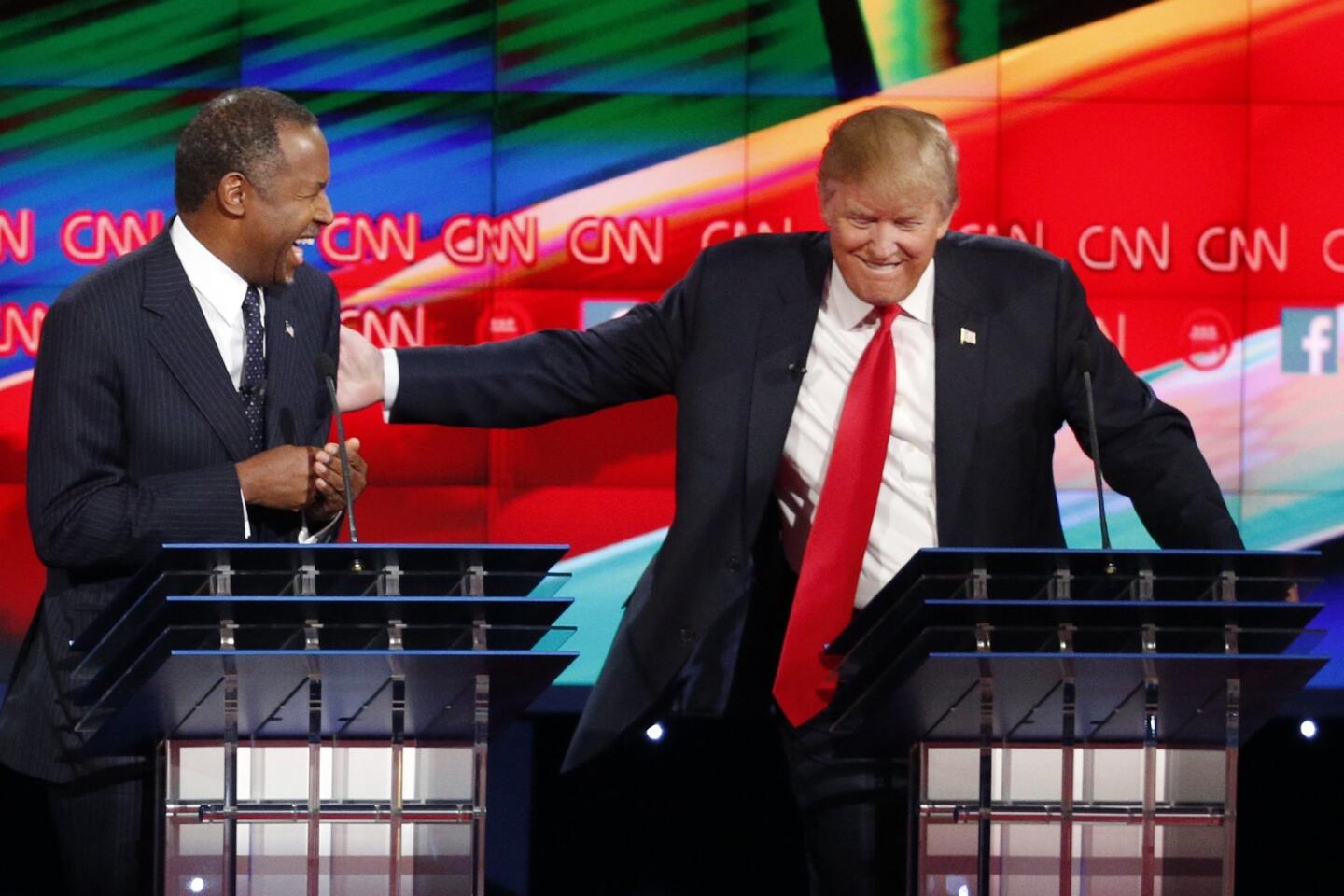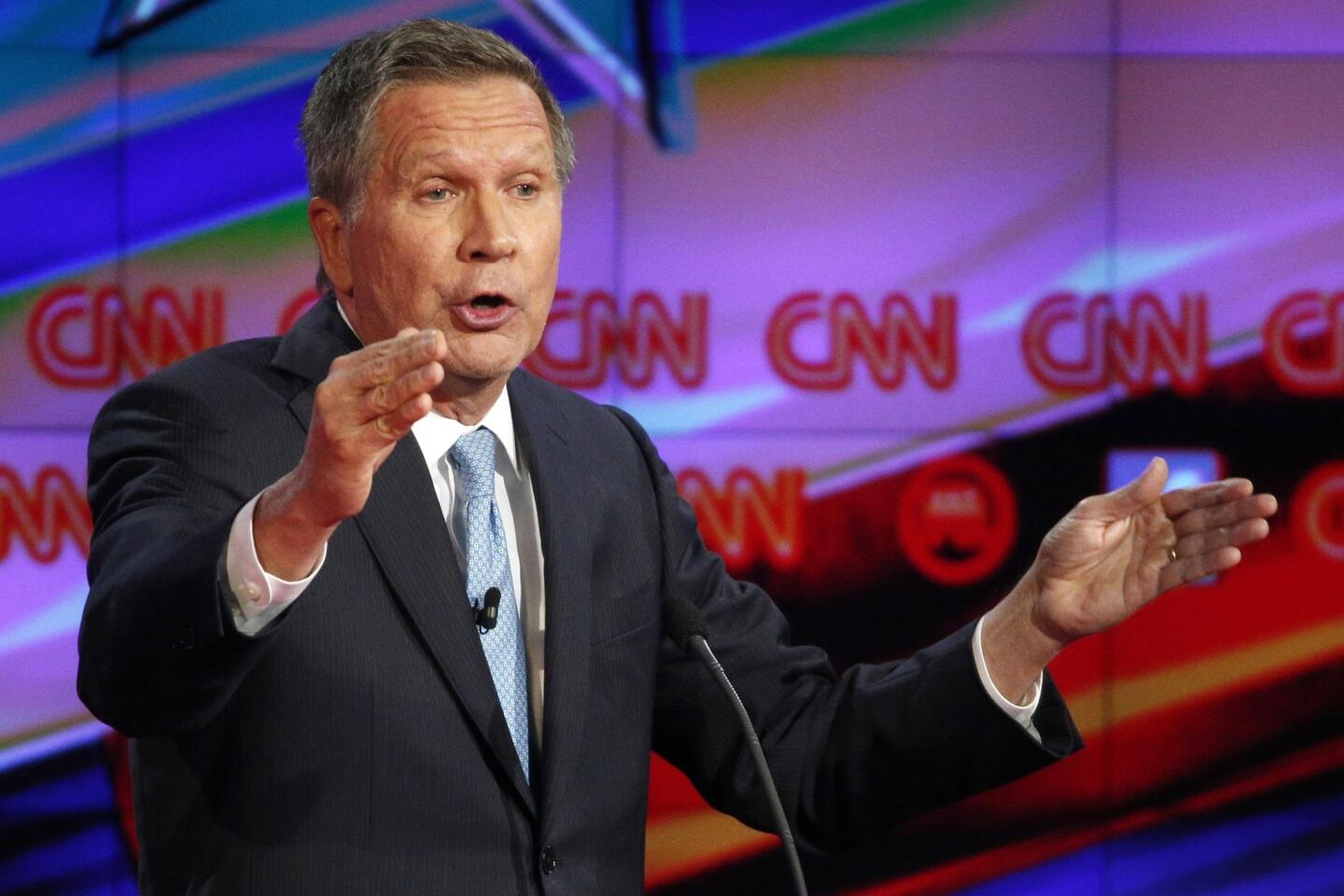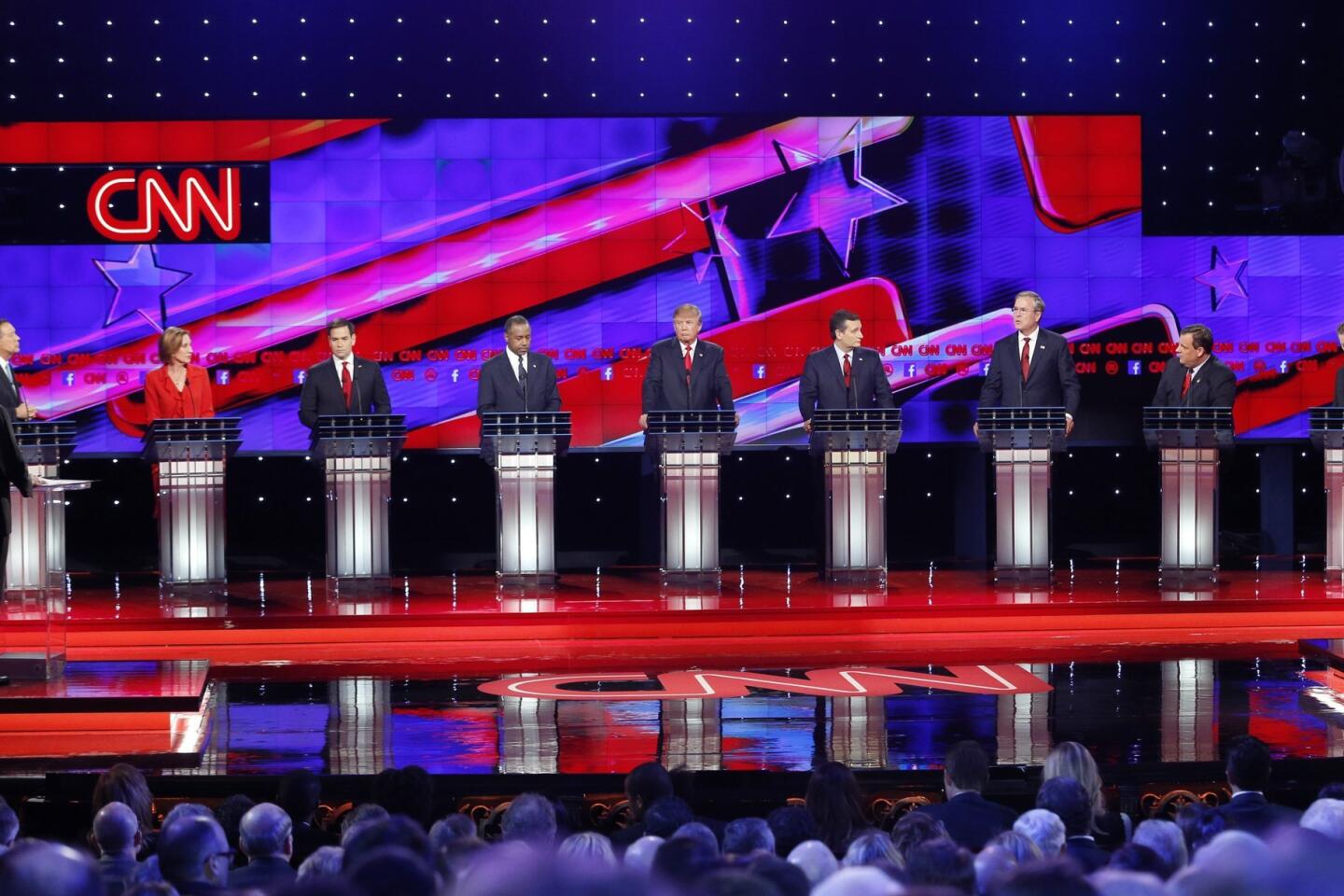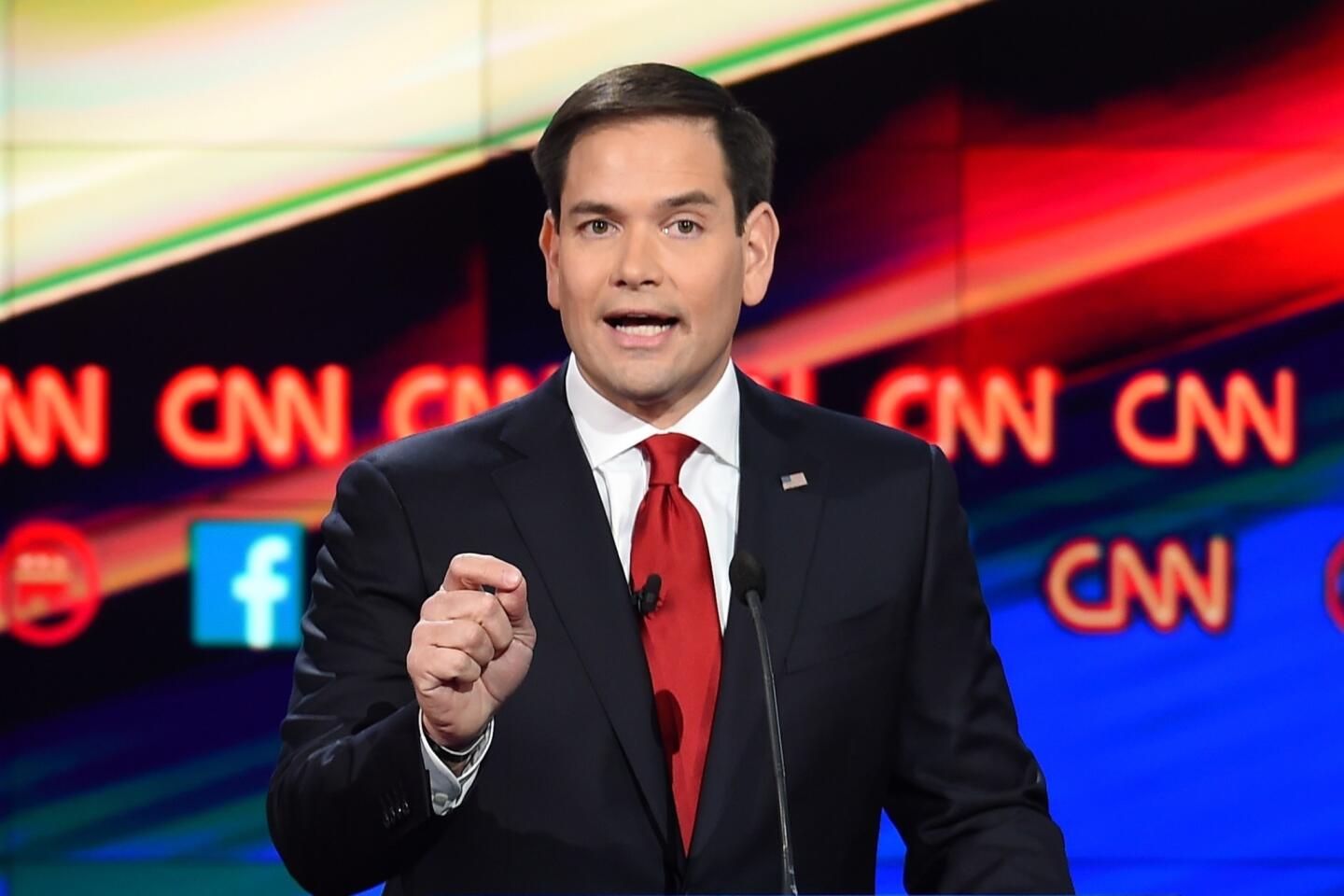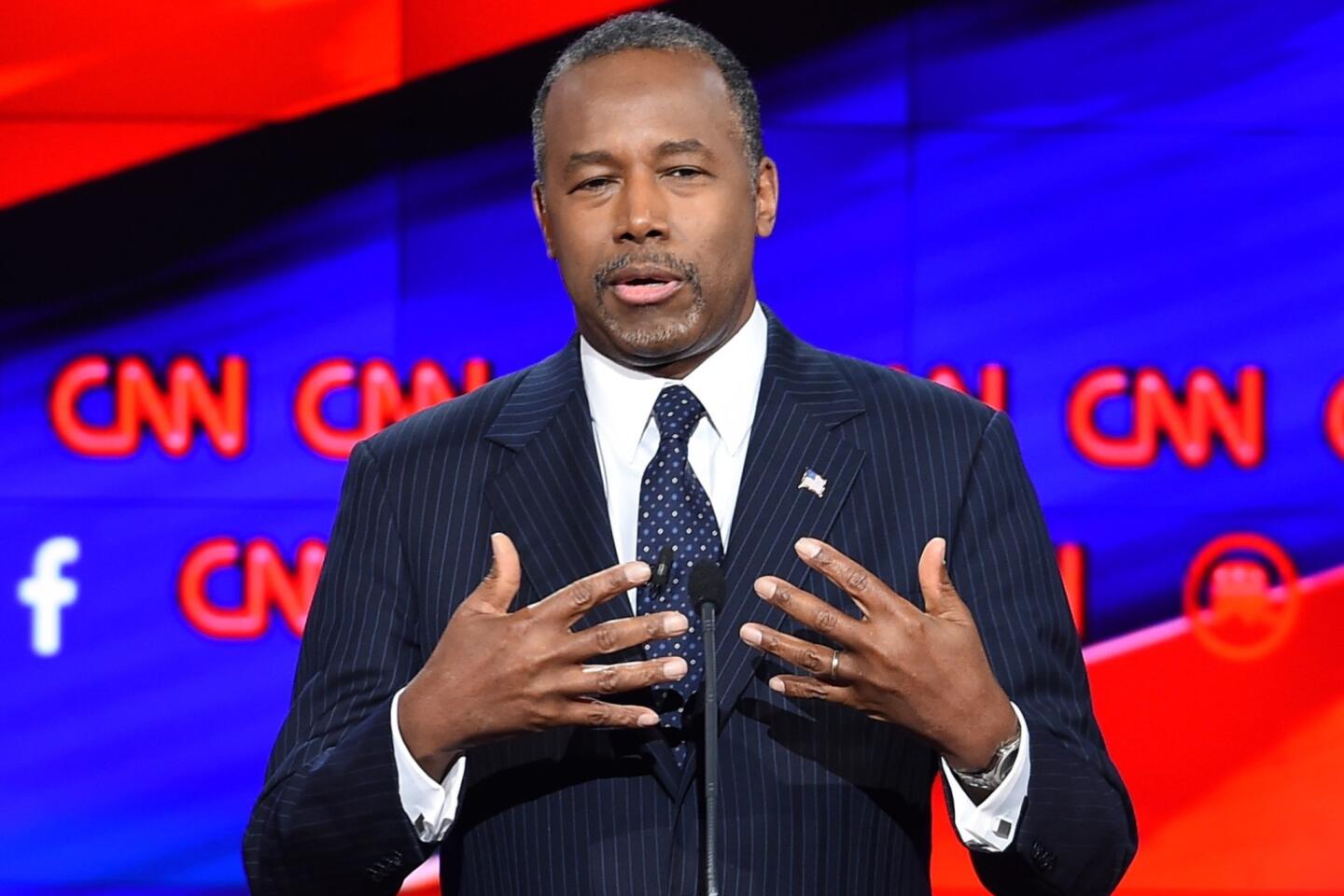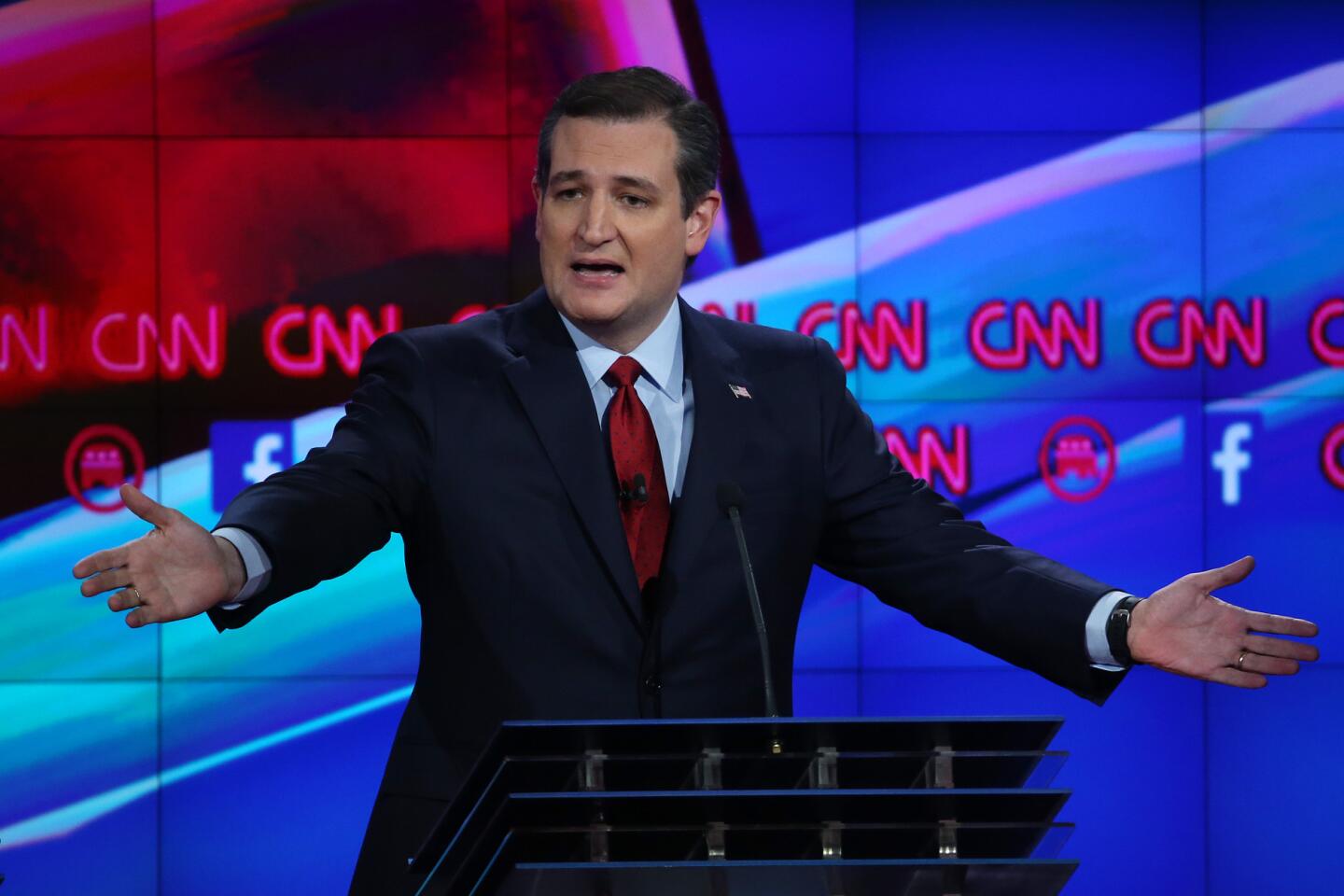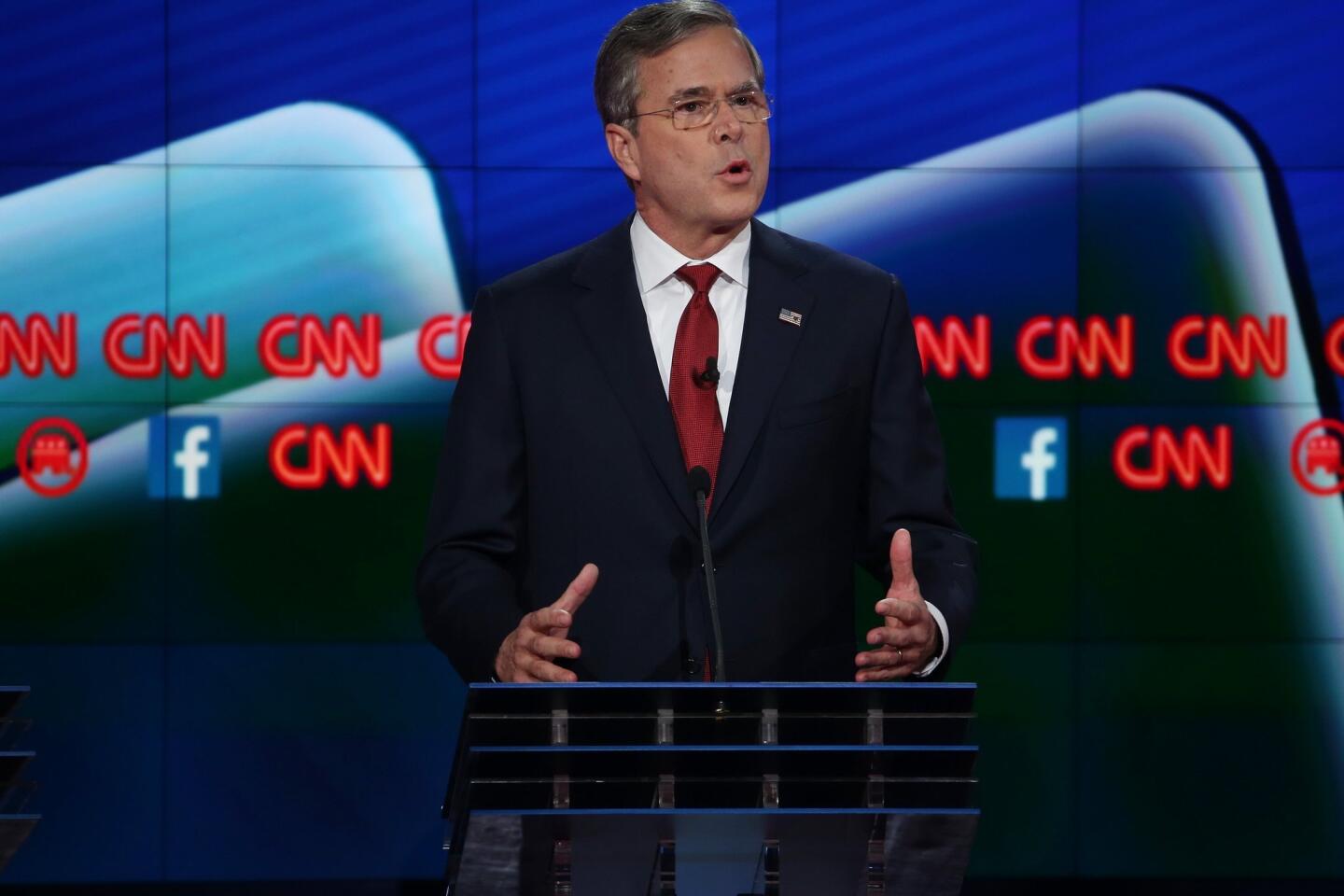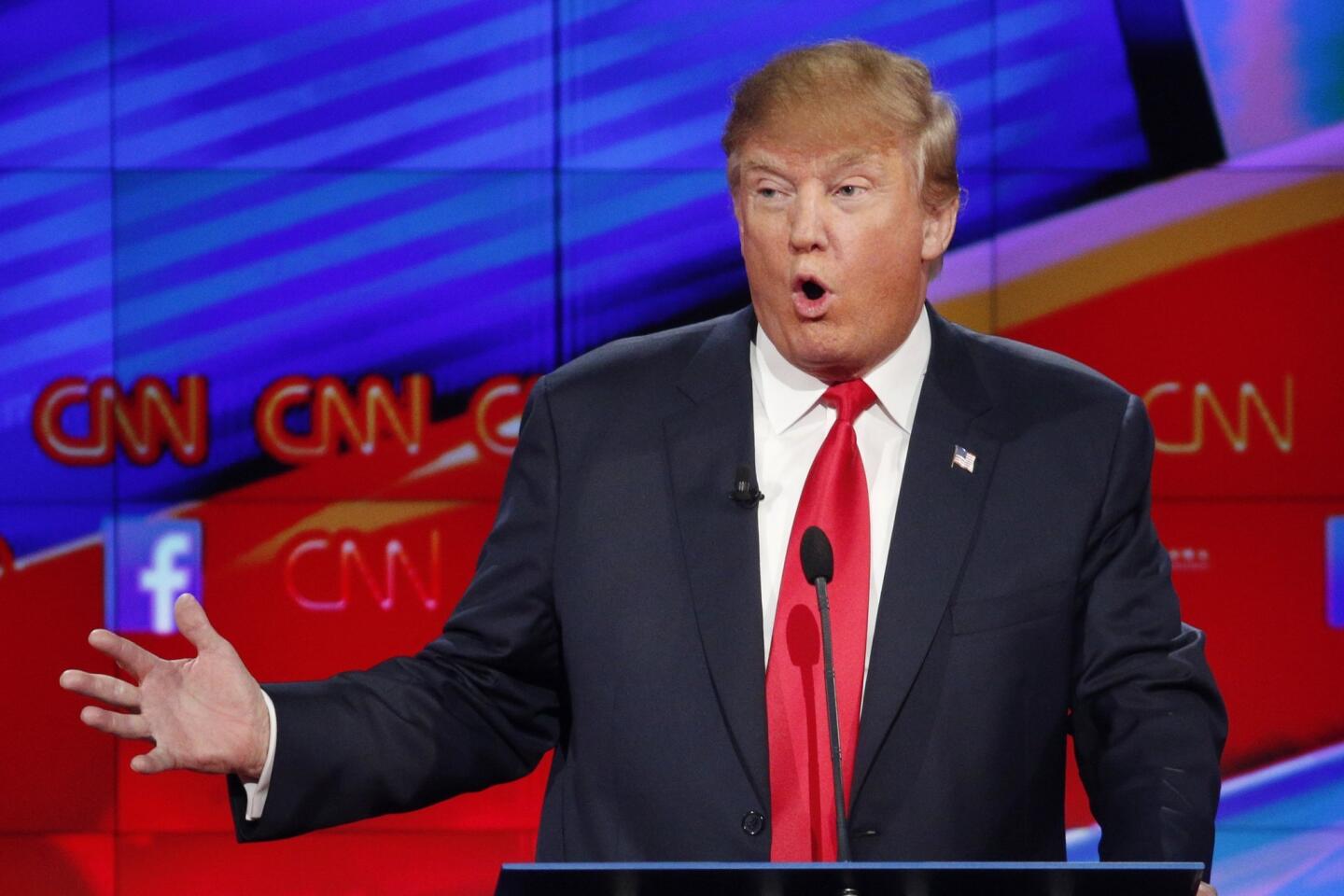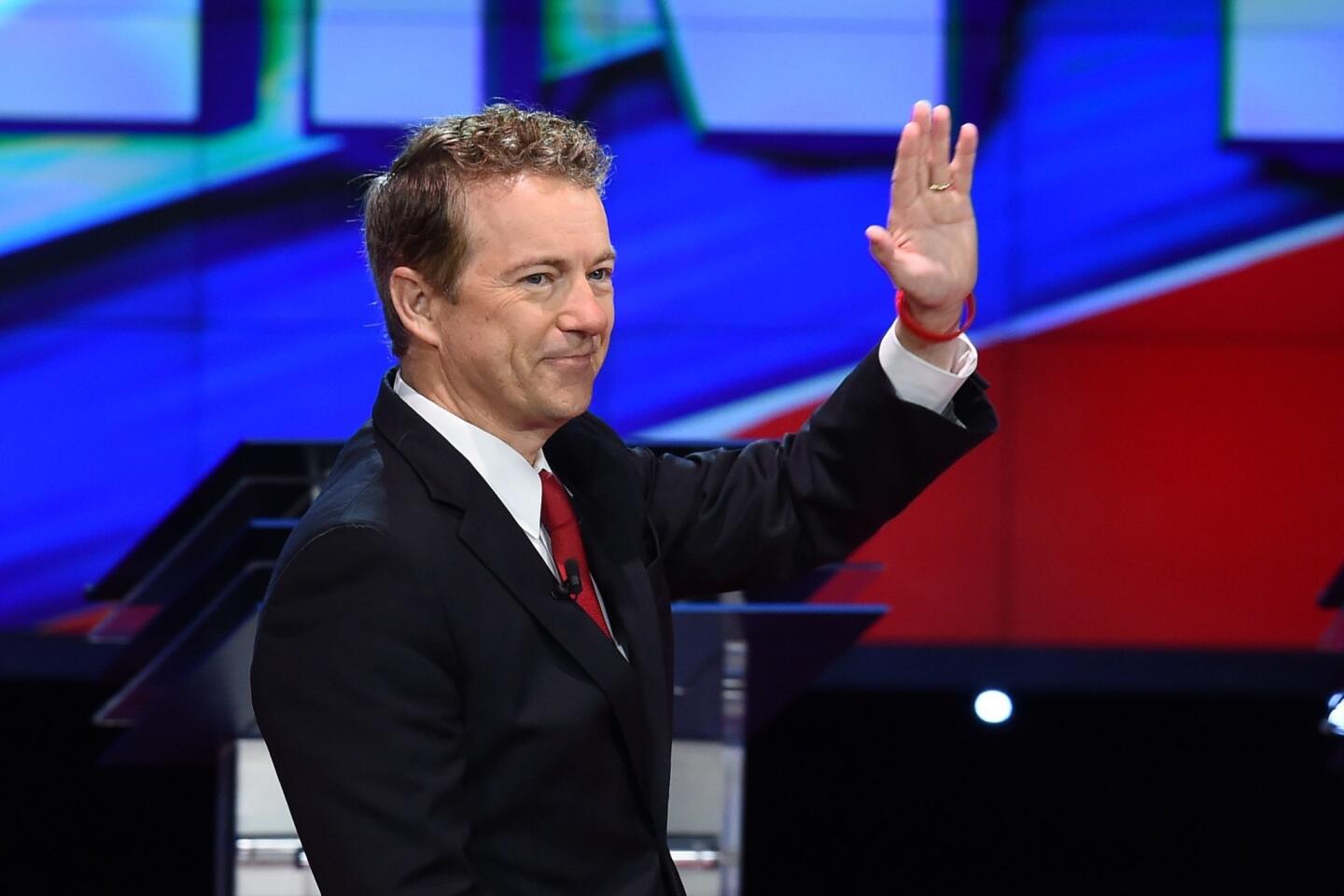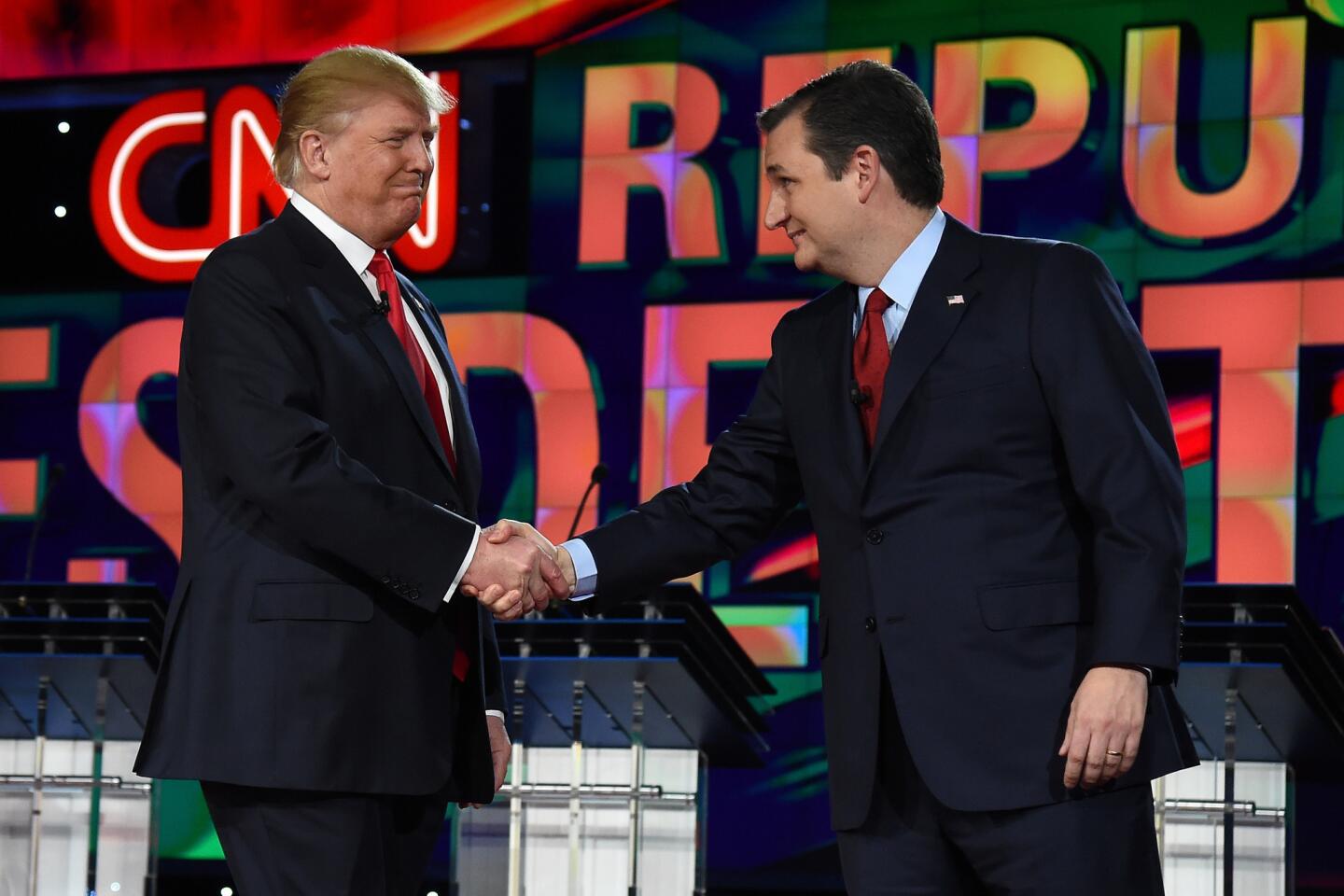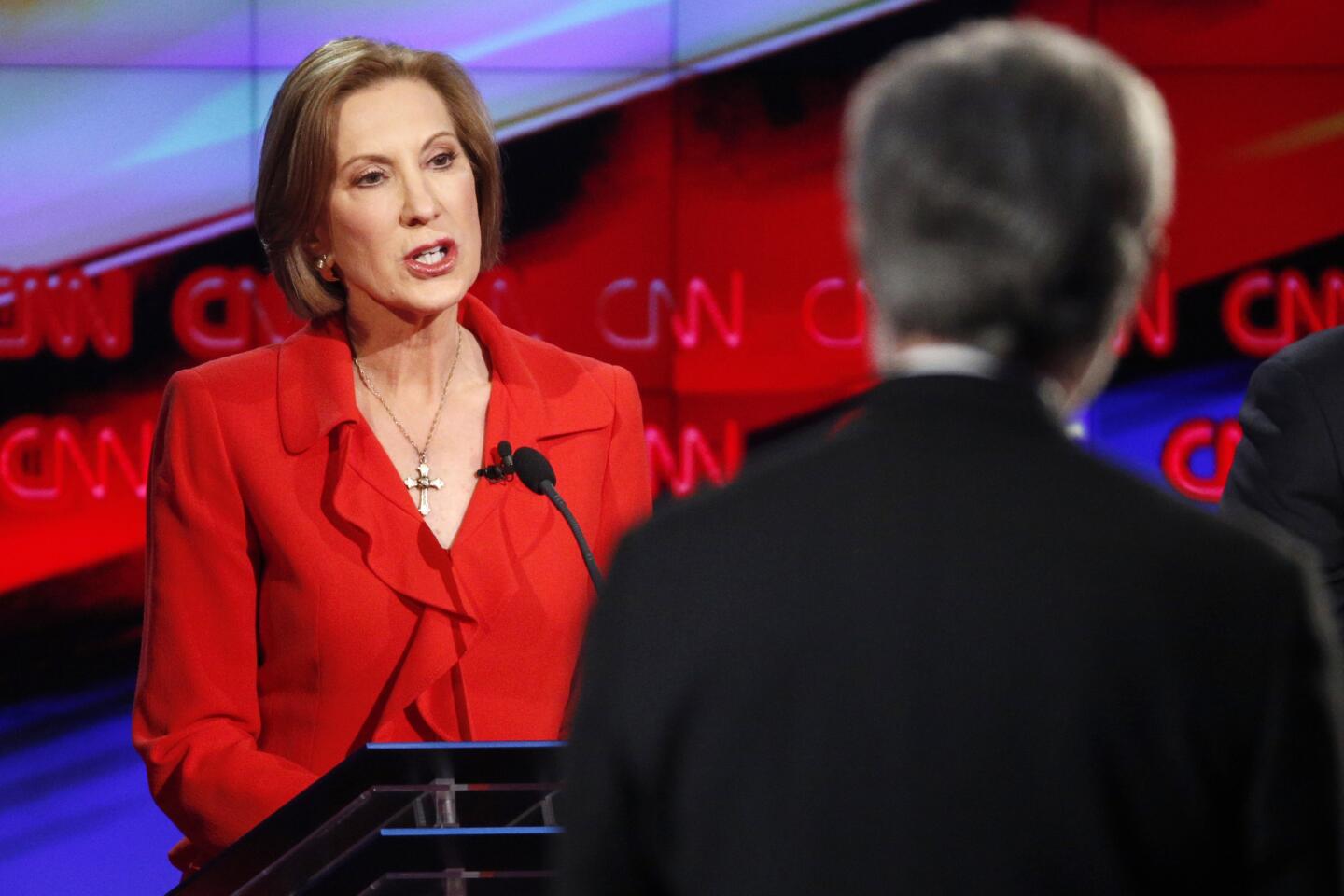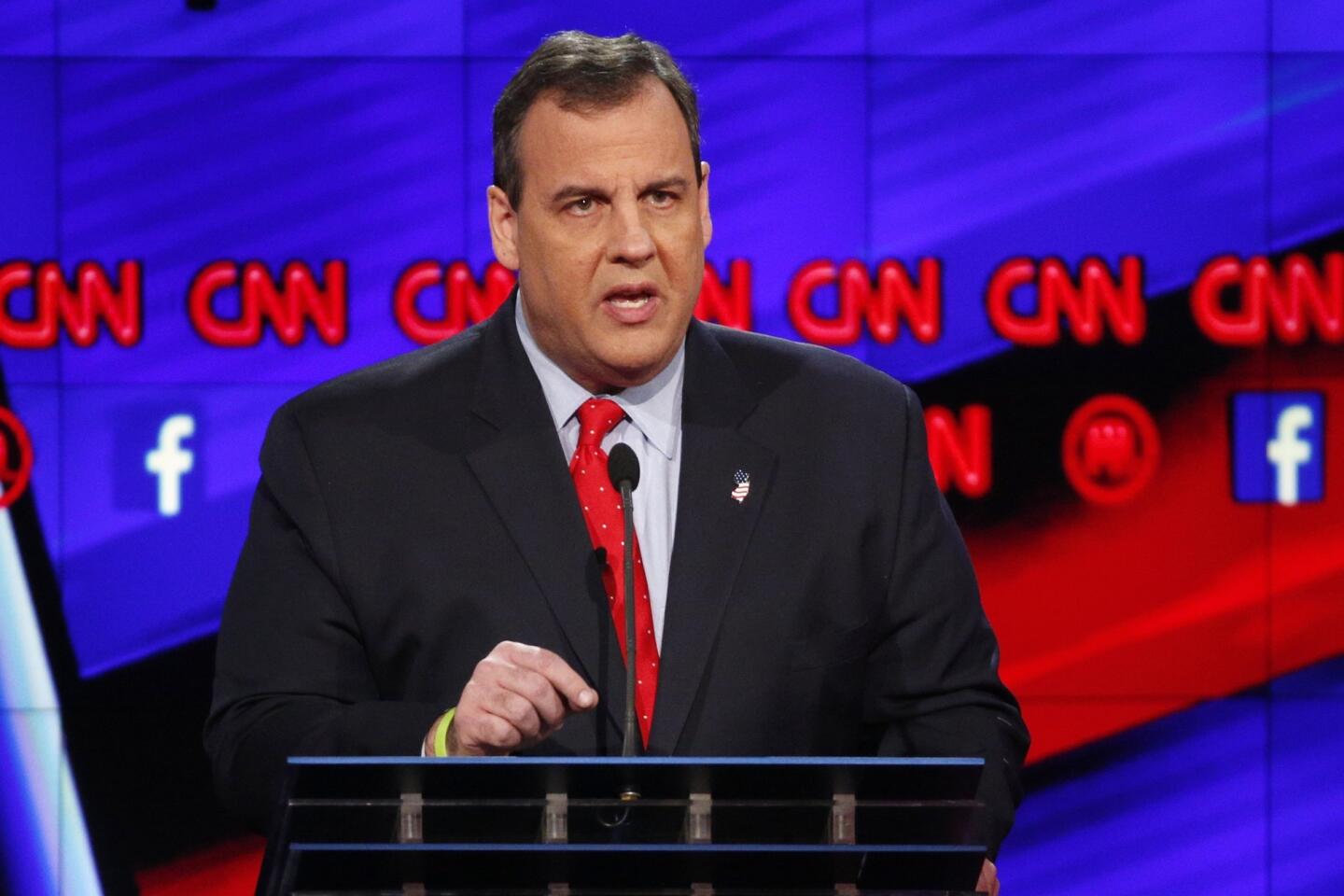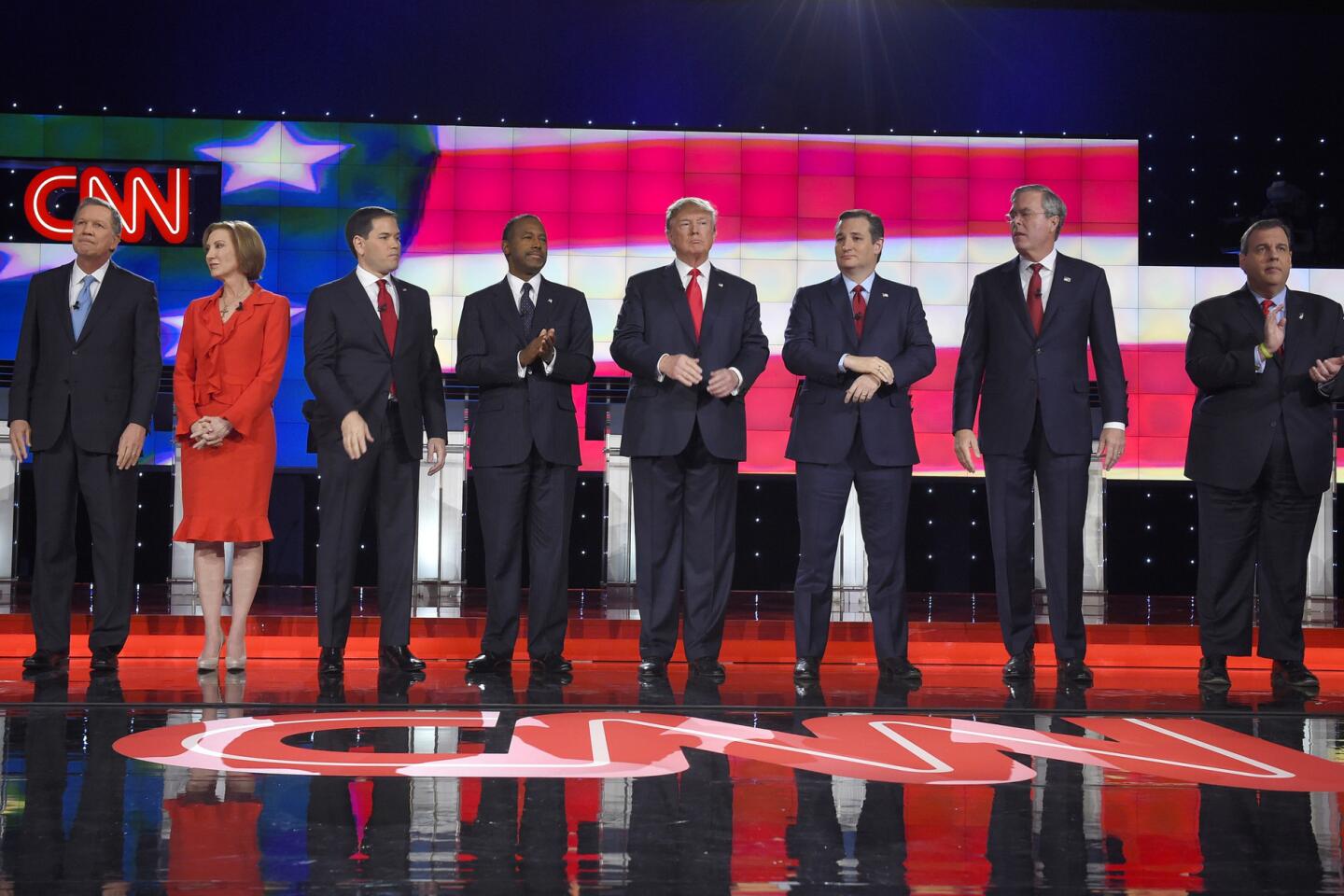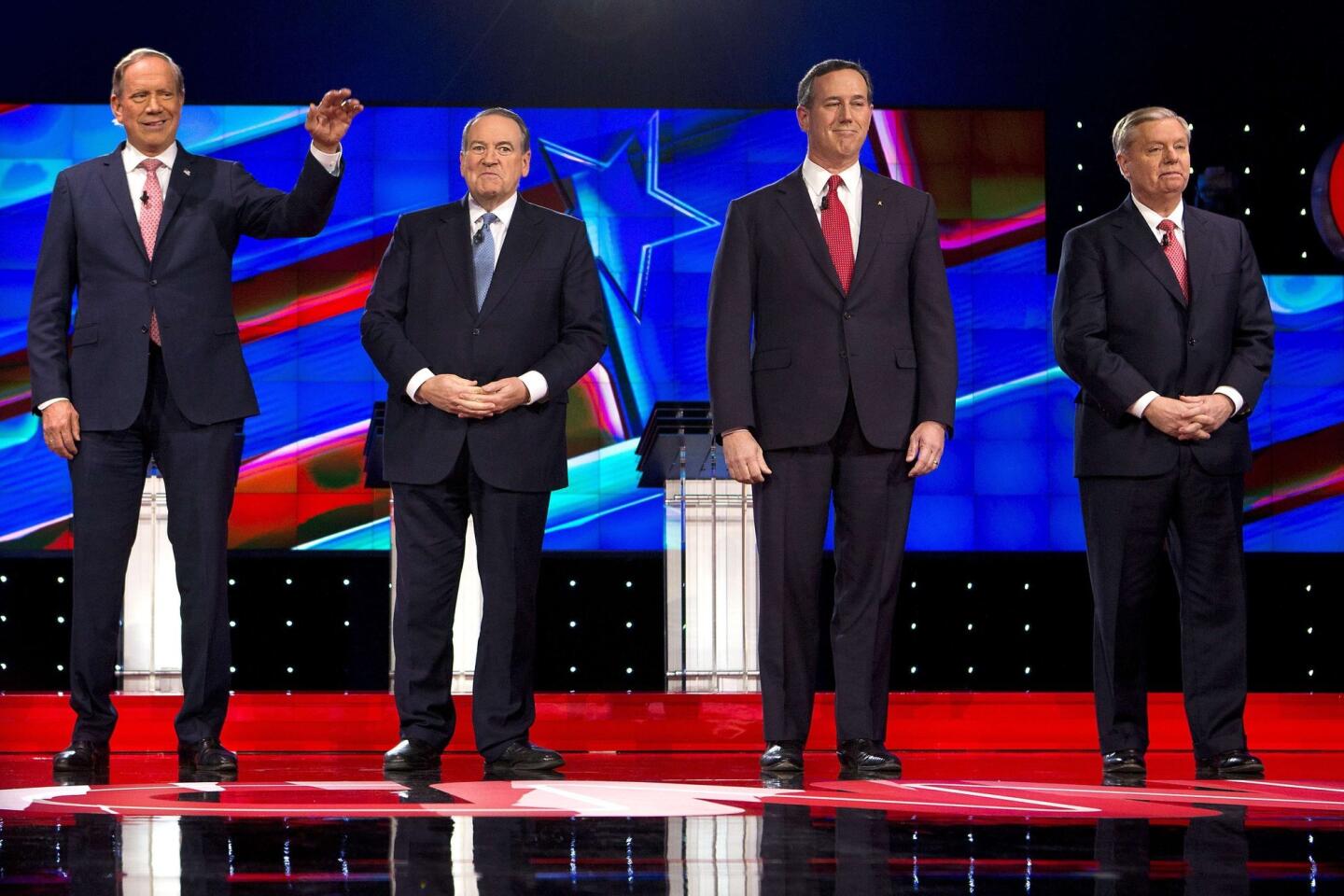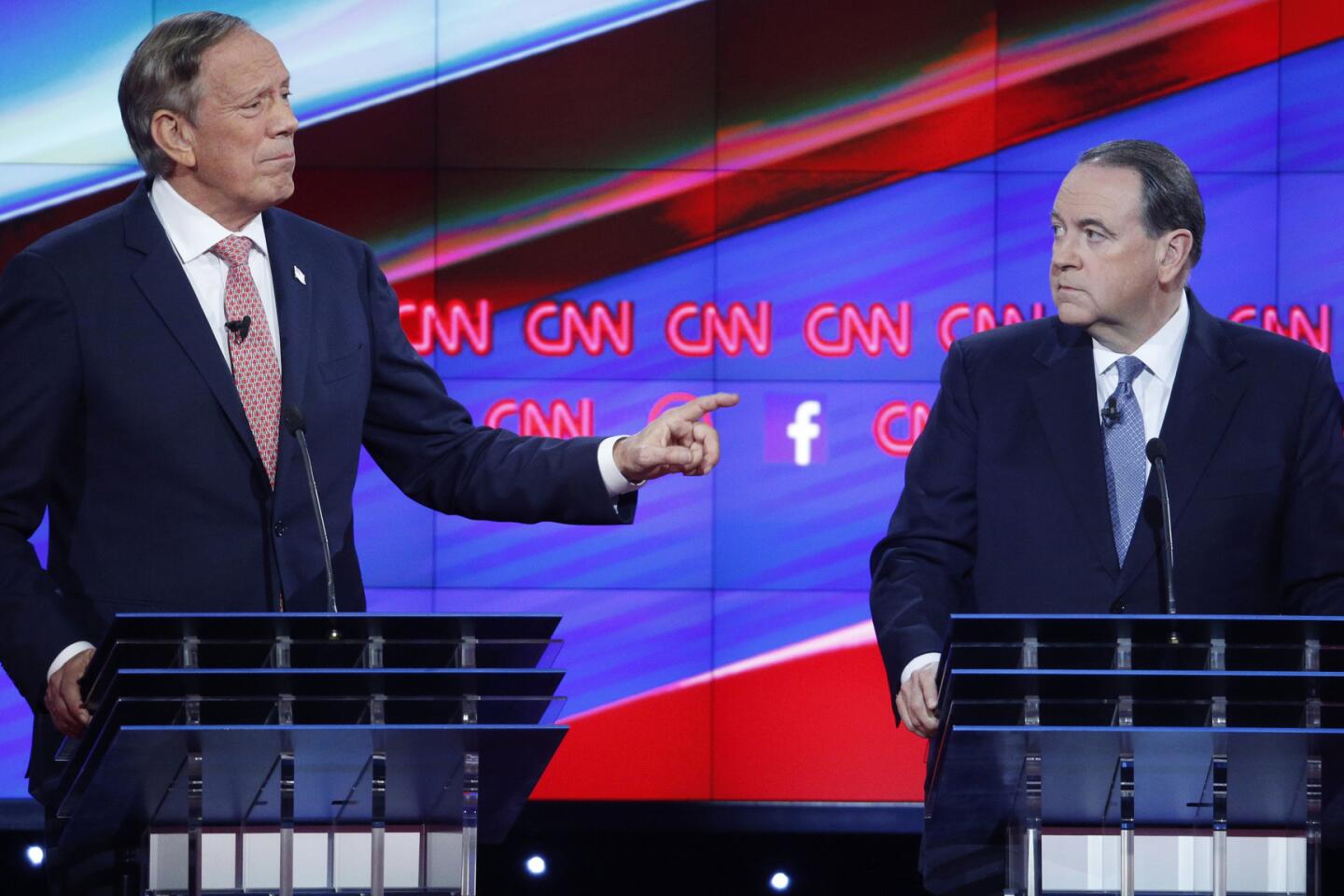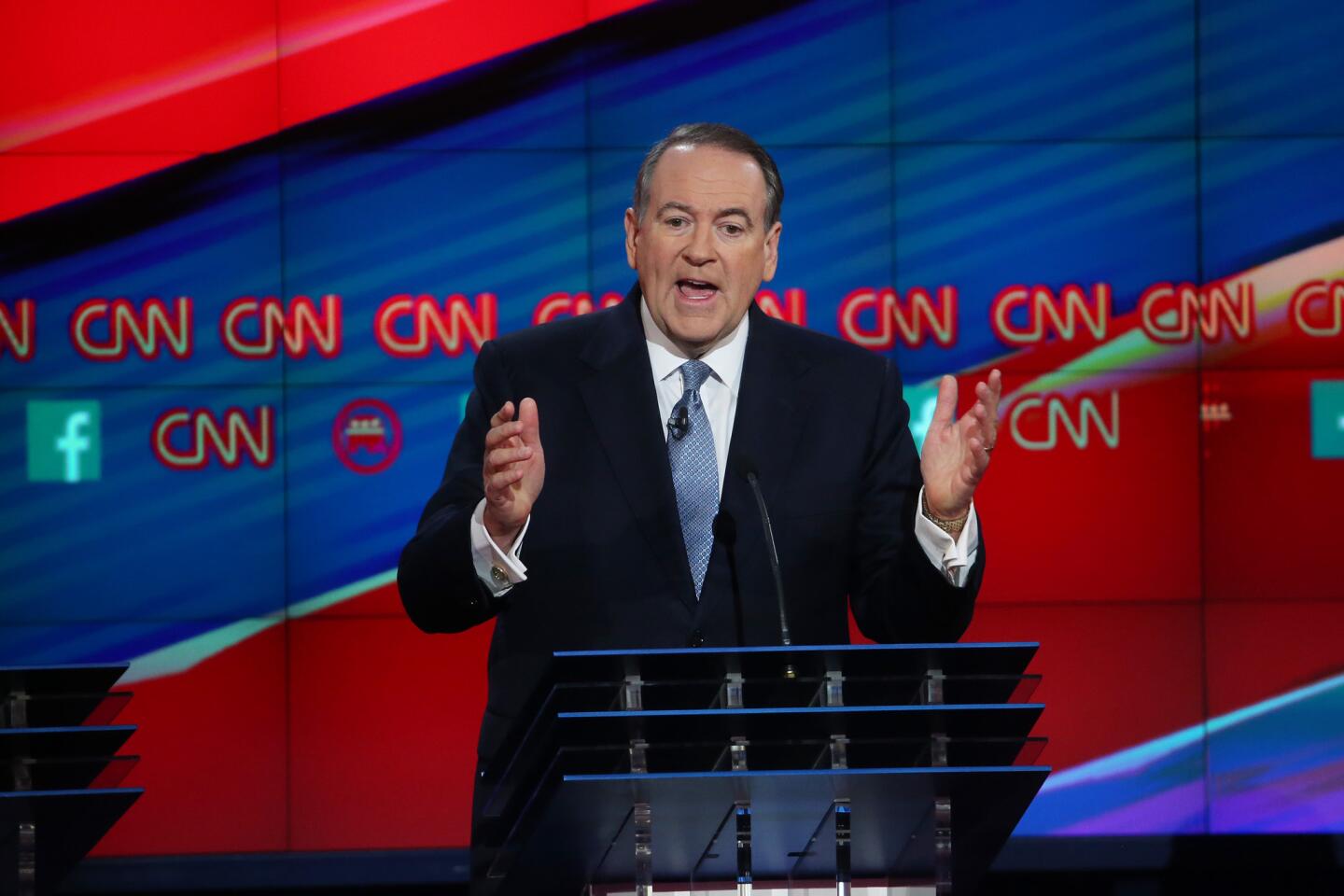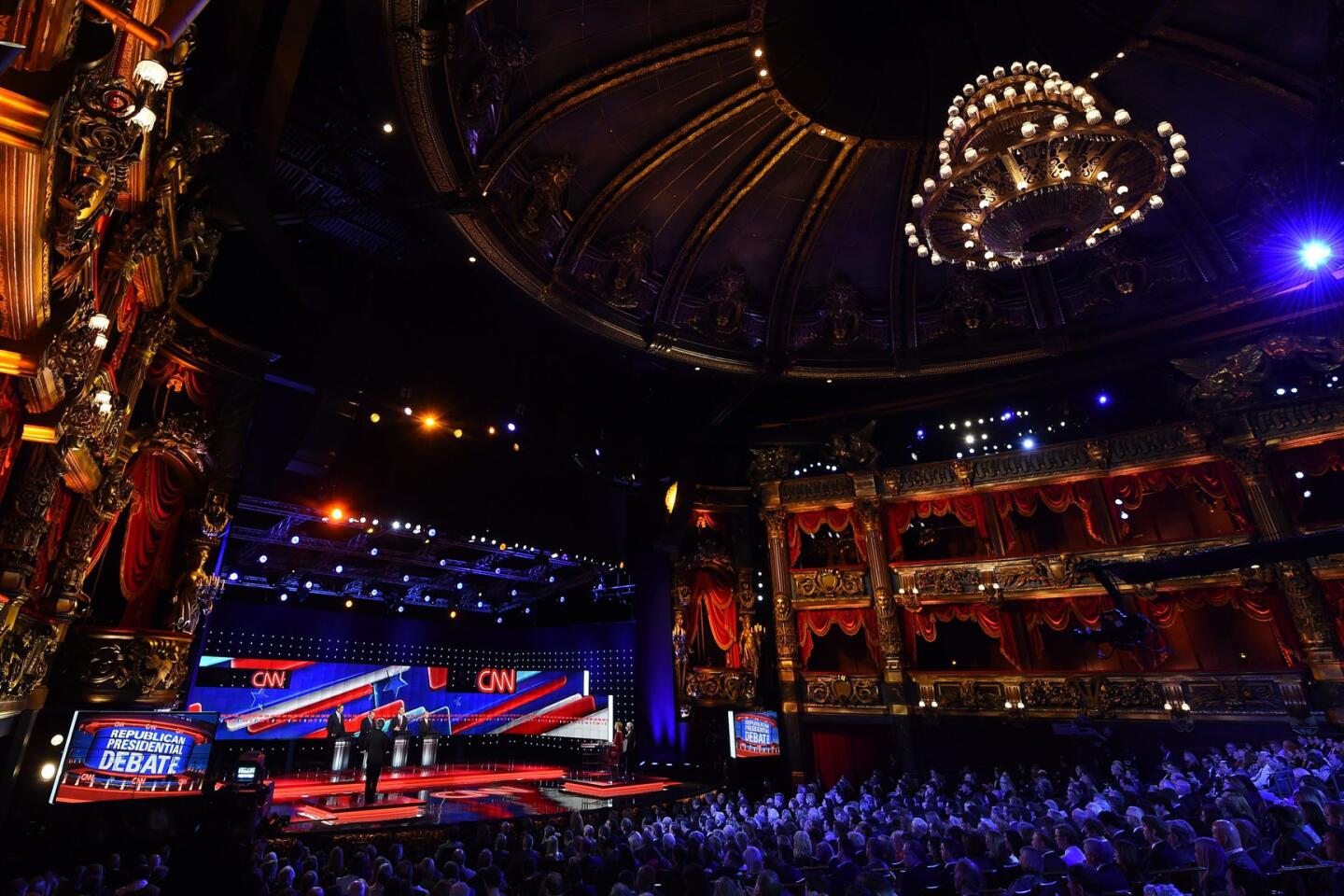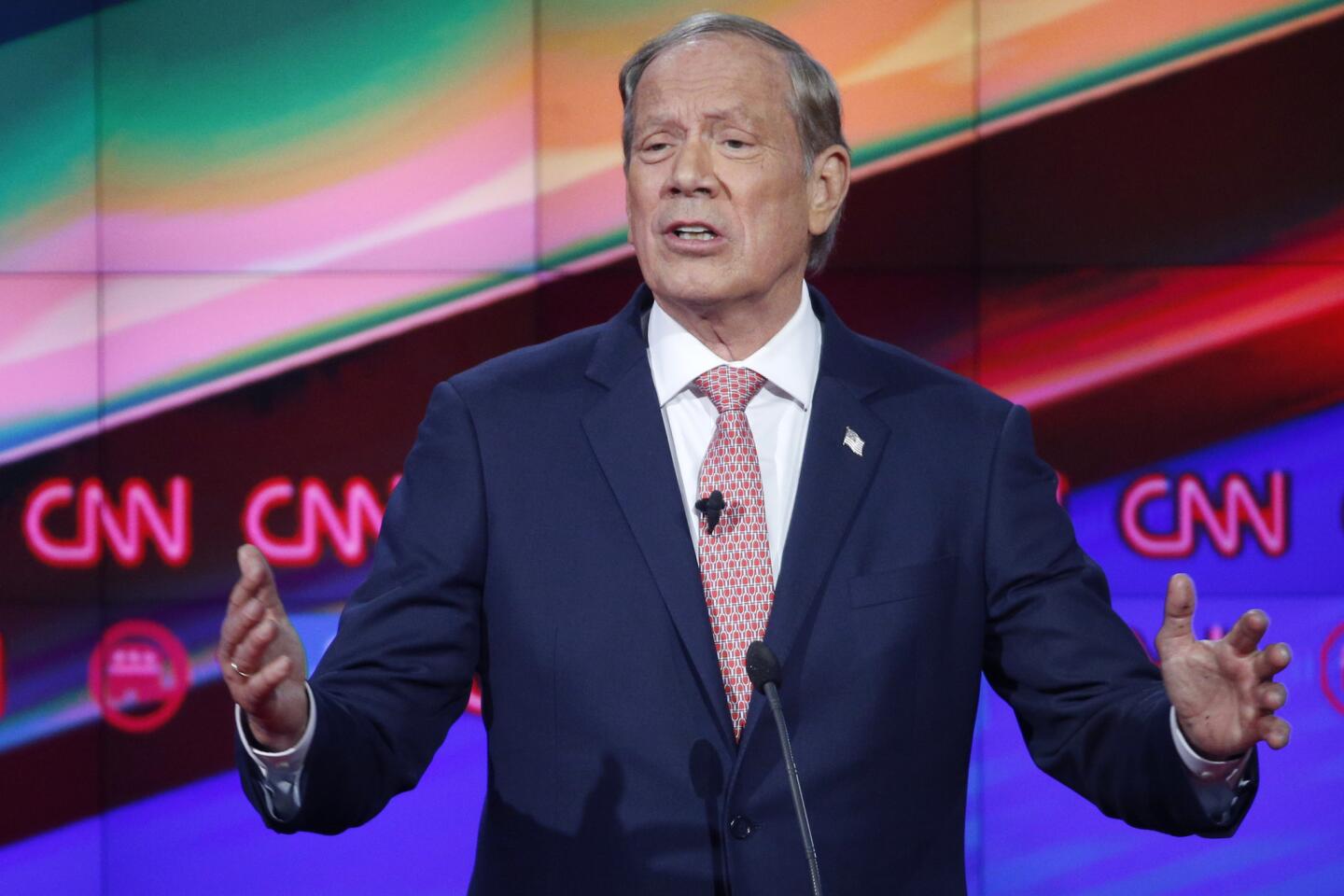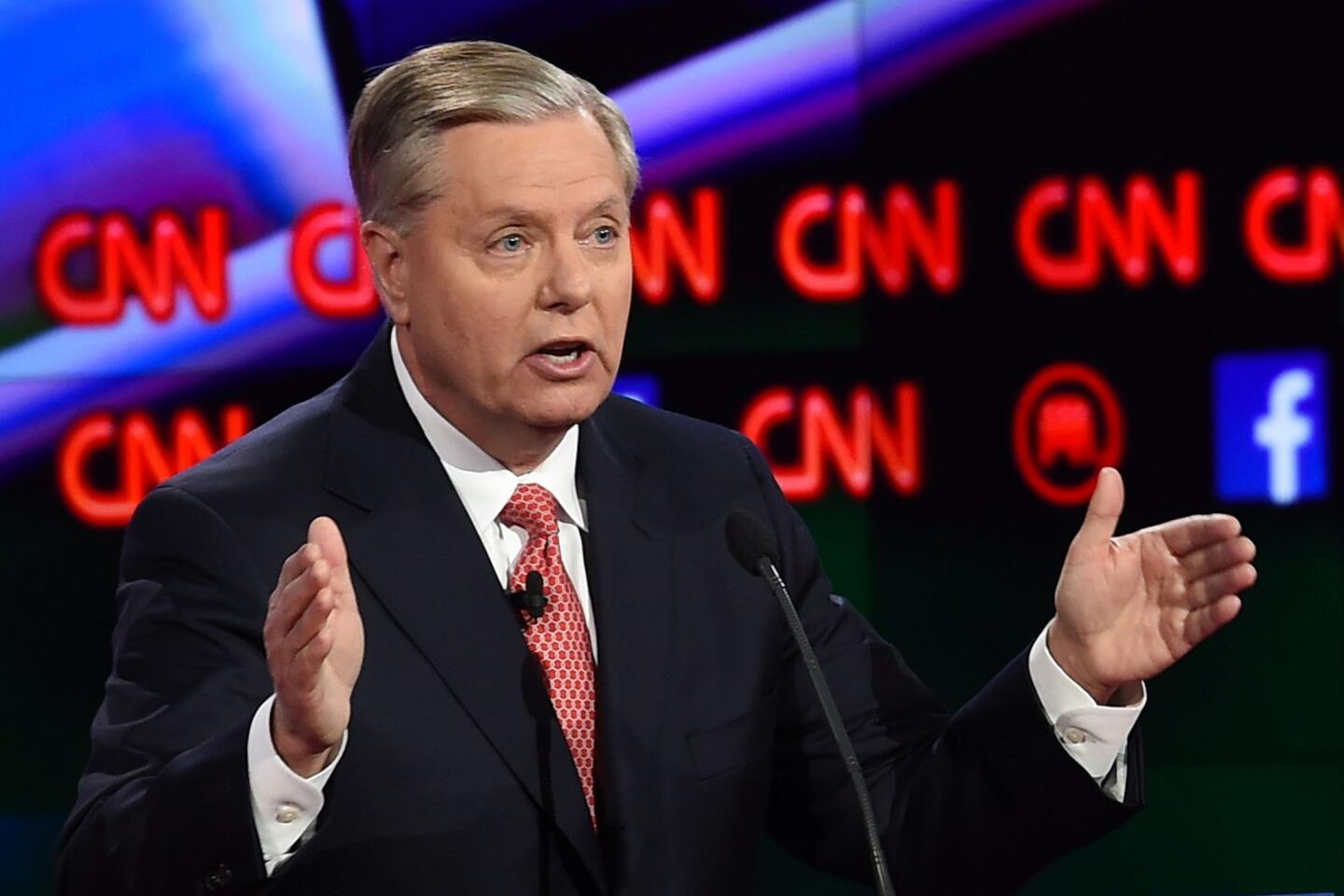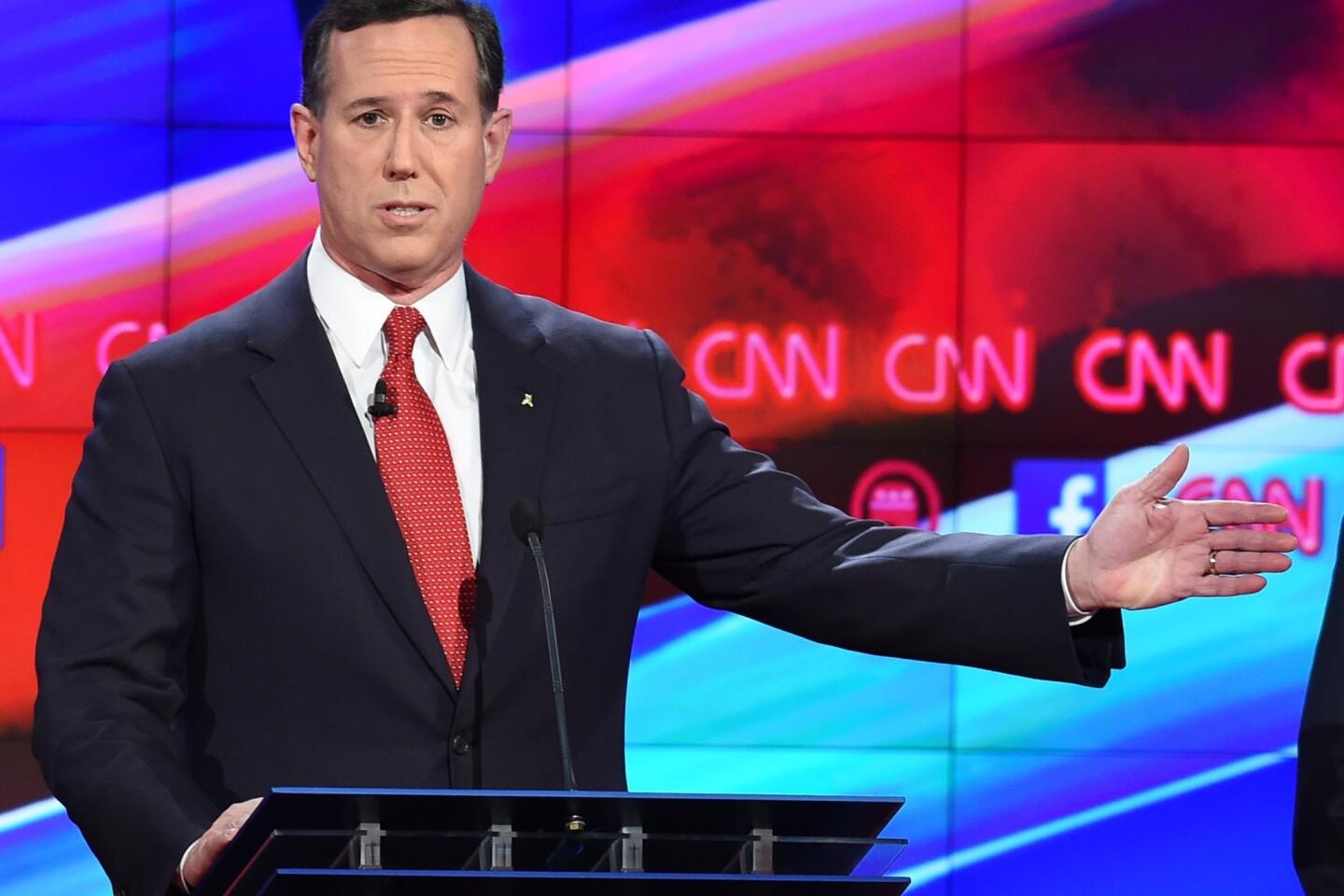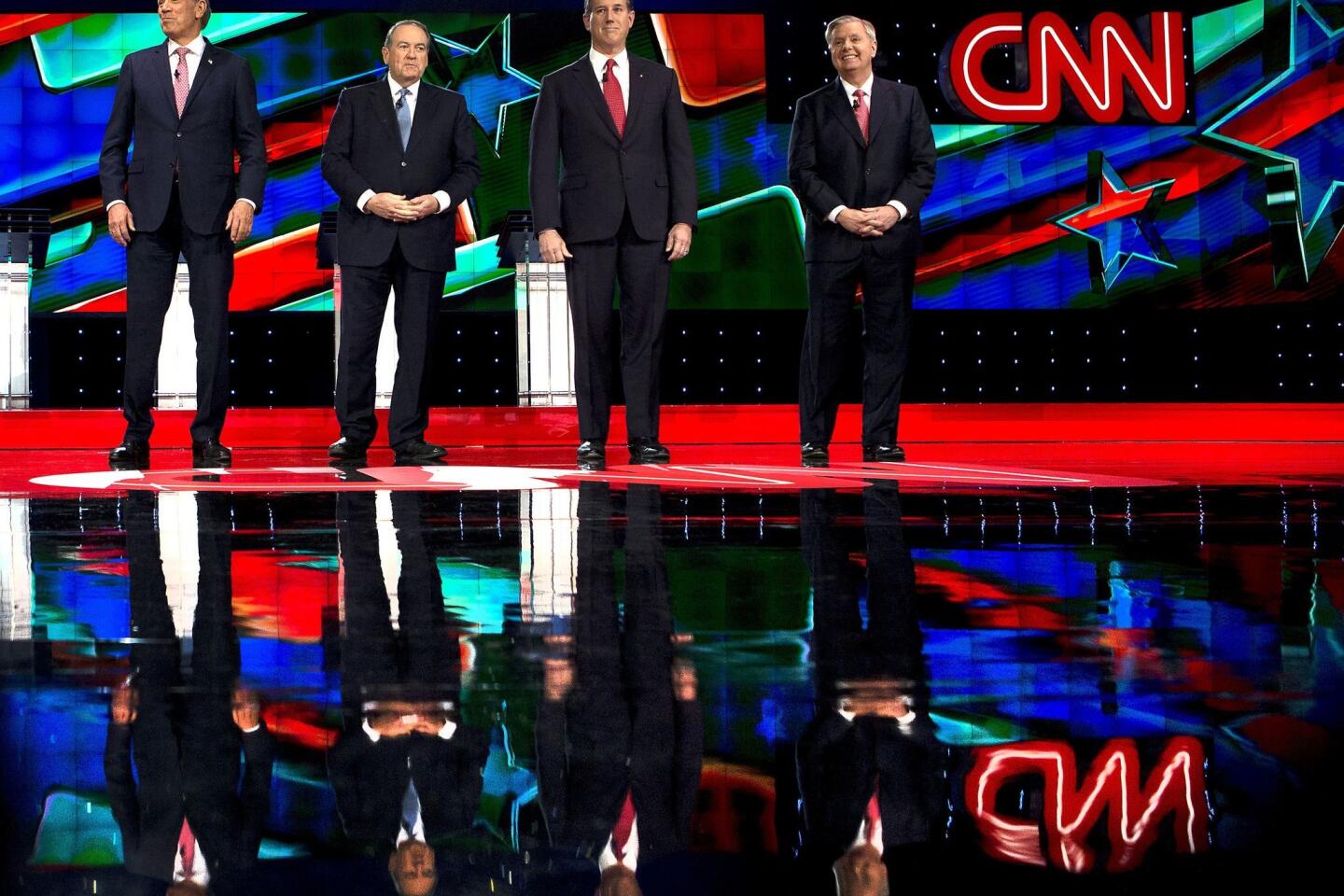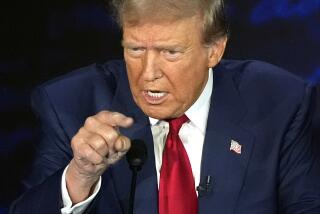A tough night for Trump and political correctness: 5 takeaways from the Republican debate
- Share via
Reporting from Washington — The fifth and final Republican presidential debate of 2015 came less than two weeks after the San Bernardino attacks, which thrust the campaign conversation into a new phase, dominated almost exclusively by national security, that continued into Tuesday night. Though the issues were sober, the candidates did not hold back in attacking each other. Here are five takeaways:
The enemy: Political correctness
Several Republicans on the debate stage reached agreement on this point, underscored by the failure to detect the radicalization of the San Bernardino killers, which they laid at the hands of what they called a timid Obama administration.
TRAIL GUIDE: All the latest news on the 2016 presidential campaign >>
Texas Sen. Ted Cruz summarized the critique, saying that it’s “not a lack of competence” from President Obama, but “political correctness.”
“Political correctness is killing people,” he added. Others made similar comments.
This has been a running theme throughout the election and a major reason for Donald Trump’s high poll numbers.
Many core Republican voters, particularly those angry with the establishment, believe the country has become weaker because Obama and other leaders are too afraid of alienating people -- at home and abroad. Candidates seeking their votes have used the term as a catch-all to attack the establishment.
Donald Trump has a tough night
He let former Florida Gov. Jeb Bush get under his skin. He stumbled in explaining the details of his proposals. He got booed. He questioned the audience for booing him. He attacked the moderators. He cited his poll numbers defensively.
It’s way too early to tell whether this will affect his poll numbers, which have been resilient to seemingly tough moments, including the last debate.
But Bush was able to lodge attacks on Trump’s perceived lack of seriousness several times, including a reference to Saturday morning cartoons. “I won’t get my information from the shows,” Bush said. “I don’t know if that’s Saturday morning or Sunday morning.”
Trump did not have much of an answer.
Ted Cruz and Marco Rubio acted like the front-runners
Trump may lead in national polls, but the two first-term senators sparred repeatedly and were treated by other candidates as the leaders.
Rubio, the senator from Florida, hit Cruz for voting to curb the domestic surveillance program and for voting against the annual defense bill. Cruz, who led in recent polls of Iowa voters, went after Rubio for his role in drafting a comprehensive immigration bill that is unpopular among Republicans, and accused him of siding with Obama and Hillary Clinton in foreign interventions that he said created dangerous power vacuums in the Middle East.
Their clash has become increasingly important in the campaign as Cruz strengthens his hand among the party’s more conservative voters and Rubio tries to consolidate establishment Republicans who have historically determined the party’s nominee.
Their differences over Middle Eastern policy have also become a significant divide in the party over how or whether to confront dictators like Bashar Assad in Syria. Rubio believes defeating him is crucial to national security. Cruz argues that toppling him would create a vacuum that would allow the Islamic State militant group to expand its reach.
Struggling candidates had good nights, but will it matter?
Kentucky Sen. Rand Paul, whose low poll numbers nearly got him knocked off the debate stage, looked like an uncaged bird. He went back to his bread-and-butter libertarian issues, needling Cruz, Rubio and Trump. His strongest moment might have been asserting that Trump’s proposals to close part of the Internet and kill ISIS family members violated the Constitution and the Geneva Conventions.
New Jersey Gov. Chris Christie, who seems to have a better shot at breaking through, also had a good time poking his rivals, mocking Rubio and Cruz as bickering lawmakers who are incapable of making executive decisions.
“If your eyes are glazing over like mine, this is what it’s like to be on the floor of the United States Senate,” he said.
Bush may also have had his best debate, but it may not be enough to shift perceptions about his campaign, which has failed to meet expectations.
Trump and Ben Carson say they will stay in the fold
Both men squelched prior threats to leave the Republican Party to mount independent bids, saying they would stay in the GOP. “I am totally committed to the Republican Party,” Trump said.
But Trump has made the same pledge before, and it has not stopped the speculation that he might bolt.
Twitter: @noahbierman
MORE ON THE DEBATE:
‘You can’t insult your way to the presidency’ and other times Bush attacked Trump at the GOP debate
GOP candidates agree on one thing: No Syrian refugees
Ted Cruz wants to ‘carpet bomb’ Islamic State, but with some limits
More to Read
Get the L.A. Times Politics newsletter
Deeply reported insights into legislation, politics and policy from Sacramento, Washington and beyond. In your inbox twice per week.
You may occasionally receive promotional content from the Los Angeles Times.
